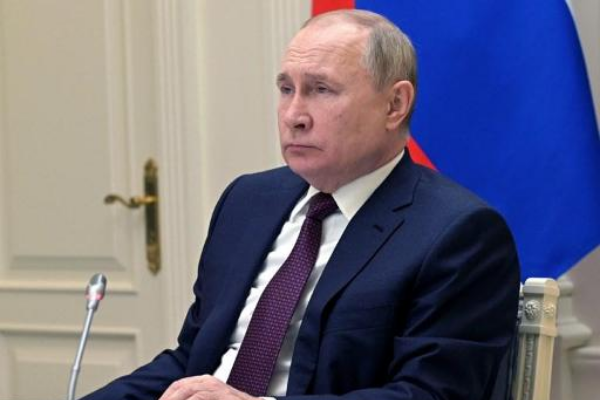Russia has delivered a clear ultimatum to Europe: pay for gas in rubles, or lose supply. The move is yet another escalation of economic tensions between Russia and the West over the invasion of Ukraine.
European leaders have responded to the ultimatum with outrage, with the German government labelling the move as “blackmail.”
In a decree passed on 31 March, Russian President Vladimir Putin announced that nations labelled “unfriendly” to Russia will be forced to pay for gas purchases in rubles through a special account with a Russian bank held by Gazprombank, the bank of Russia’s state-run gas company.
The bank would then buy rubles “on behalf” of the foreign buyer, and transfer funds to the state. Gazprombank is currently sanctioned by the British government but is still eligible to use SWIFT in trade with the European Union.
Saving a sinking currency
The move is driven by Russia’s desire to save its floundering currency. Since Russia launched its invasion of Ukraine on February 24, the national currency has lost its value: the worth of 1 ruble went from being €0,011 before the war to a new low of €0,0061 on March 7, knocking 45% off its value.
Foreign gas purchases in rubles should help restore the currency's value and reduce the impact of foreign sanctions. Following the announcement of Putin’s demand for payment in rubles, the value of Russia’s currency rebounded.
Putin warned that those who do not agree to pay in rubles risk being cut off entirely from gas supplies: “If these payments are not made we will consider it a failure of the buyer to fulfil its obligations, with all the ensuing consequences.”
Calling the Kremlin's bluff
European leaders are not impressed and will continue to pay in euros and dollars. They argue that a switch to rubles would breach their existing contracts and take many months to renegotiate.
If Russia goes ahead with its threats the impact will be huge. The EU still imports just over 40% of its natural gas from Russia. Despite the EU’s intentions to wean itself off Russian fossil fuels, any interruption in supply would create huge shortages.
In the event of a cut-off from Russian gas, the German government has stated that it may resort to rationing if reserves get too low. Austria has also activated emergency plans to monitor energy supplies closely.
Related News
- Ukraine war: Will EU impose sanctions against import of Russian natural gas?
- US promises EU extra 15 billion cubic metres of gas this year
Compared to other countries, Belgium is much less reliant on Russian gas, and imports just 4-6% of its needs from Russia. Instead, it imports around 33% of its gas from the Netherlands, 30% from Norway, and 20% from Qatar.
Nevertheless, Belgium is not immune to the knock-on effects of gas shortages. If Russian gas were to be cut overnight, European gas would drastically increase in price, impacting individual states and consumers.
Business as usual
For the time being, little has changed on the European energy market. Prices remain high but Russian gas continues to flow across the EU’s external borders.
Yet this doesn't mean that Russia has failed to act on its threats and Europe could still see its gas supply cut. Kremlin spokesman Dmitry Peskov had previously said that Putin’s decree would not affect volumes of gas that had already been paid for.
“Does this mean that if there is no confirmation in rubles, then gas supplies will be cut off from 1 April? No, it doesn’t, and it doesn’t follow from the decree,” Peskov told reporters.
Multi-billion euro energy contracts are not easy to get out of, and switching currency agreements will take time. While Putin hopes that threats to Europe’s energy supply may bring the West to heel, the Russian government is also unlikely to act rashly and risk seeing its most profitable industry go up in smoke.
Russia’s gas infrastructure is heavily intertwined with Europe’s. Finding new buyers would mean radical overhauls to infrastructure and new lengthy agreements.
European leaders have called the Kremlin’s bluff. Now, Belgium, and other European countries, can only hope they have done enough to avoid any future cold winters.

